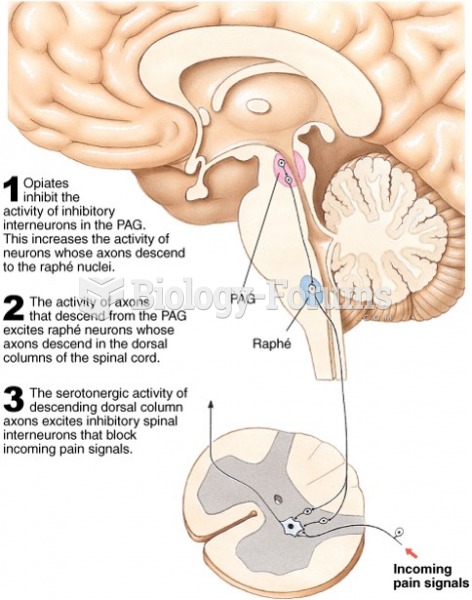|
|
|
The Romans did not use numerals to indicate fractions but instead used words to indicate parts of a whole.
There are more sensory neurons in the tongue than in any other part of the body.
In the United States, congenital cytomegalovirus causes one child to become disabled almost every hour. CMV is the leading preventable viral cause of development disability in newborns. These disabilities include hearing or vision loss, and cerebral palsy.
Coca-Cola originally used coca leaves and caffeine from the African kola nut. It was advertised as a therapeutic agent and "pickerupper." Eventually, its formulation was changed, and the coca leaves were removed because of the effects of regulation on cocaine-related products.
Nearly 31 million adults in America have a total cholesterol level that is more than 240 mg per dL.







